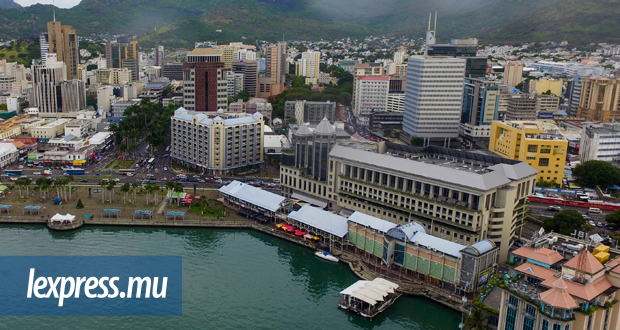Publicité
Economic development - Mauritius a new tiger in the making: the Singapore syndrome
Par
Partager cet article
Economic development - Mauritius a new tiger in the making: the Singapore syndrome


With a catalogue of new projects and developments the Prime Minister has announced to the nation, let us hope that we shall have a new prosperous Mauritius built on solid foundations this time. The question that comes to mind: can Mauritius become a new tiger in the making?
A democratic authoritarian rule is what this country needs at this moment. So far, this country is not doing too bad as there are many prospects and projects ahead in making Mauritius a new tiger of the Indian Ocean.
Lee Kuan Yew once told a group of students that Singapore belongs to all of them. He said: “We made this country from nothing, from mud. It is man, human skill, human effort, which made this possible.” The success of Singapore and other East Asian countries in achieving rapid and equitable growth has inspired many leaders since the study of developing economies began in earnest in the hope of identifying a formula that their economies could implement to formulate the East Asian economic development experience.
However, consequent to the economic meltdown in the 1990’s in Asia, analysts began to say that East Asia’s extraordinary growth was only a fluke and that there is nothing exceptional about East Asia. But to their astonishment, East Asia miraculously recovered from near terminal economic sickness.
There are signs and symptoms that Mauritius is gradually and very slowly becoming like Singapore of the 80’s and 90’s in so far as its swift economic recovery is concerned. This issue is now baffling many western and African economists as they desperately try to interpret the factors that helped the Mauritian recovery in a very confused scenario.
However, those who understand the limited relevance of economic theory to the prosperity and wealth of nations will not be surprised by the swift recovery and good standard of living in this part of the Indian Ocean. Today, prosperity and confidence are plainly returning to most of the East Asian nations.
Mauritius too is having its fair share of prosperity and confidence where its population is better off than most third world countries. It seems even for a giant like Japan the outlook does not look that pessimistic despite the fact that the recovery mood in Asia may not go very deep as yet.
The Asian Tigers may upbeat with the turn of events, but many of these economics still have a huge overcapacity and limited bank credit. But it seems the example shown by South Korea and Japan demonstrates that the most important points of development are the inner qualities and resilience of a society and its citizens.
The economies in East Asia that grew rapidly in the 1980’s and early 1990’s used the same policy instruments as other developing economies, but with a greater success. Economists, however, conclude by saying that East Asia’s extraordinary growth was due to superior accumulation of physical and human capital and that these economies were also better able than most to allocate physical and human resources to highly productive purposes.
In this sense, there was nothing miraculous about these East Asian economies’ success. Each has performed the essential functions of growth better than most other economies. This indicates that sound economic policies and well-ordered markets help.
The striking internationalization of competition in the 1990’s has been accomplished by major shifts in the economic fortunes of nations. Governments and firms have inevitably been drawn into a heated debate about what to do. Due to our consistent failure in the past to adopt a development model to suit Mauritius’ physical and human resources, much discussion over the last 20 years has been centered on the eight economies in East Asia.
Singapore’s boom was identified with just one person: Lee Kuan Yew. Mr Yew in his farewell speech to his party just before he relinquished office said: “Your generation has to grapple with the problems of relative success, with a future no longer primarily concerned with overcoming poverty, ignorance, disease, unemployment. That the baton has been passed on to a vigorous group with high ideals and principles is the most important single achievement in the last decade.”
Publicité
Les plus récents






